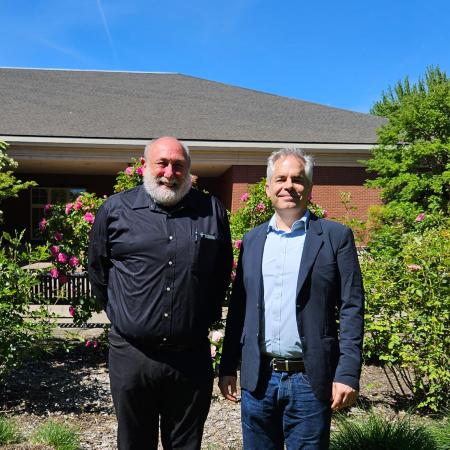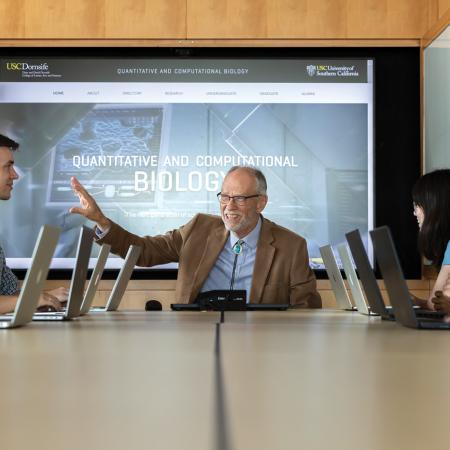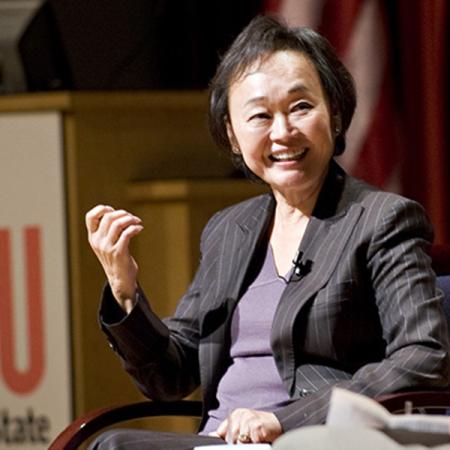In science, ‘new’ is a constant. Novel research techniques propel studies forward. Updated software creates ripples across technology. But as fields evolve at a breakneck pace, leaving the rest of the world to play catch-up, there is a subset of communicators helping us along — technical writers.
Technical writing breaks down complex scientific jargon into easily understood information. Those who pursue the niche are much like Swiss Army knives, able to learn and explain a variety of specializations. Alumna Megan Tucker, ‘20, is one such knife.
After completing a double major in Mathematics and Liberal Studies with a focus on writing, Tucker worked as a technical writer for Amazon Web Services for three years. She is currently completing her master’s degree abroad. Using the breadth of knowledge and professional skills she naturally gained as a College of Science undergraduate, she has found the sweet spot between her two passions in a truly rewarding career.
“It felt great to graduate knowing I could continue to learn and write about science and become an expert in fields I wouldn’t have known existed until someone said, ‘We need a tech writer.’”
Doing the math
The perfect set of degrees for Tucker wasn’t immediately obvious. While she always had an additional writing-focused major, her first major in STEM was nuclear engineering. It was short-lived as she felt drawn to the deeper discussions about quantum mechanics available to physics undergraduates. But physics still wasn’t quite right, and she finally turned to the major that had run through each of the others: mathematics.
Having academic advisors dedicated to each major ready to help made for a smooth transition into mathematics. It turned out to be an excellent fit, even as the content became increasingly difficult. Triumphing over challenges with the help of her mentors was one of the best learning experiences the major had to offer.
“I was really struggling with some proofs in an abstract algebra course and Professor Schmidt told me, ‘You can do this proof. You’re doubting yourself. Stop doubting yourself and you’ll be able to solve anything you put your mind to.’ That was such a game changer for me, to realize that yeah, I can do this,” she said.
“That’s really what I went to college for, to talk to experts in their field ... Having the opportunity to work with those people and learn from them is probably the best thing that I got out of OSU and the College of Science.”
The switch was especially validated at the end of her junior year when she was accepted into an internship for the Department of Energy, which she found through attending a College of Science research seminar. She flew to Pittsburgh and Washington, D.C. to study data sets that could prove useful for carbon sequestration.
Surrounded by Ph.D. candidates of many specializations, Tucker appreciated the experience for its challenging environment.
“In college especially, people should really push themselves. That’s their opportunity to learn and try things and fail. I don’t even think you should stop doing that after college, but college is a really nice place where you can do it a lot,” she said.
This style of learning led by knowledgeable guides was a highlight of her time as an undergraduate, and she cherishes the lessons it taught her.
“That’s really what I went to college for, to talk to experts in their field,” she said. “Learning not just about the class, but about what it means to get your Ph.D., what it means to get your master’s and what it means to be a mathematician. Having the opportunity to work with those people and learn from them is probably the best thing that I got out of OSU and the College of Science.”
The unspoken questions
When technical writing was first introduced to her through her coursework, Tucker had no intention of pursuing it further. A career in the niche hardly crossed her mind.
“I was like, ‘It’s a course I took in school, no one actually does that for work, right?’” she recalled ironically.
But when she later accepted a grant writing internship on campus while searching for more work opportunities, her perspective shifted. She began to see the world of possibilities that lived at the intersection of writing and science. Her two passions that once seemed completely disparate merged into her dream job. By the time senior year rolled around, she was applying for as many technical writing positions as she could.
A job offer from Amazon Web Services came back in March and she began working for them in Seattle soon after graduation. AWS is the most widely adopted global cloud provider, boasting millions of users who rely on its services. Much of Tucker’s work involved creating user and application programming interface guides for each software release. Her writing boiled down imposing cloud architecture setup into step-by-step instructions, guiding customers out of a computer deep end and into smooth sailing.
“There's an endless amount of things I could write about. You’re answering the unspoken questions that need to be answered.”
The skills she learned from both of her degrees played prominent roles in her daily work. Being able to absorb the ins and outs of feature releases and discuss science-heavy content with software developers both stemmed from her mathematics major. These then pooled into planning, writing and editing technical documentation for the company, allowing her to thrive in her position.
Along with the skills she purposefully developed, Tucker found that the ones she gained naturally as a science student were critical to her success.
“It’s very much like university with different clothing,” she explained. “Ultimately, I really had to keep up with my courses and be organized and punctual. That’s pretty invaluable to me working, staying on top of my tasks and being able to communicate these topics with people who have a varying level of knowledge about them.”
After three years at AWS, Tucker resigned to work toward her master’s in writing at Queen’s University in the U.K., which she plans to earn later this year. The degree will be another step higher for her into the world of technical writing, one full of possibilities.
“I love the field because of that conversation between STEM and writing,” she said. “I could write for chip manufacturing, I could write for a university, I could write for medical tech. There's an endless amount of things I could write about. You’re answering the unspoken questions that need to be answered.”



